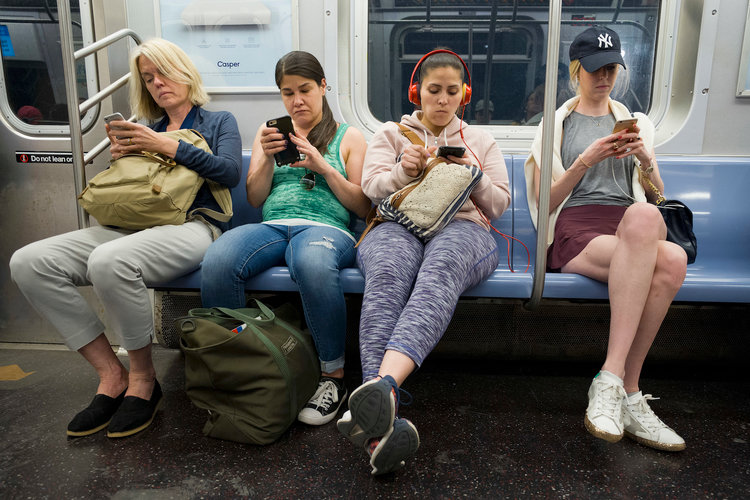(单词翻译:单击)
A new study from NYU's Rudin Center for Transportation Policy and Management finds that women spend on average about $1,200 more than men each year on taxis or ride shares over fears about their safety on public transportation.
纽约大学鲁丁交通政策与管理中心的一项新研究发现,由于担心自己在公共交通工具上的安全,女性每年乘坐出租车或在拼车上的花费平均比男性要高出1200美元左右。
The extra cash falls in what the researchers call a "pink tax," or the extra money women spend on items simply because they are women -- such as pastel-colored razors that cost more than razors marketed to men, or tampons.
这些额外的费用被研究者们称为“粉红税”,或者称为女性仅仅因为自己是女性而花在商品上的额外费用,比如比男性剃须刀更贵的女士用的彩色剃毛刀,以及卫生棉条等。
Products for women cost an average of 7 percent more than male-marketed products, according to a 2015 New York City Department of Consumer Affairs study.
根据纽约市消费者事务部2015年的一项研究,女性产品的价格平均比男性产品高出7%。

The same is true for women getting around the city, the study found. About 30 percent of the women in the survey said they don't take public transportation late at night over fear of harassment, theft or assault -- something that 75 percent of the women say they've already experienced on public transportation, compared to just 47 percent of men.
研究发现,女性在城市中出行也是如此。约30%的受访女性表示,由于害怕受到骚扰、盗窃或袭击,她们不会在深夜乘坐公共交通工具,75%的女性称,她们在乘坐公共交通工具时就有过这种经历,而男性只有47%。
Only 15 percent of the women report feeling safe on the subway or buses.
只有15%的女性表示乘坐地铁或公共汽车时感觉安全。
The financial impact is worse for people who are responsible for others, such as a baby or dependent relative -- and the majority of those people are women, the study says. Those caregivers say they spend an extra $75 on transportation each month.
该研究称,对那些需要照顾婴儿或者家属的人来说,产生的财务影响更糟,而这些人中的大多数是女性。这些看护人表示,他们每个月要在交通上多花75美元。
Study authors tell Wired that the MTA should consider ways to make women feel safer, such as hiring more attendants -- and better yet, women attendants.
研究报告的作者向《连线》杂志透露,交通运输管理局应该考虑让女性感到更安全的方法,比如雇佣更多的员工--最好是女员工。


